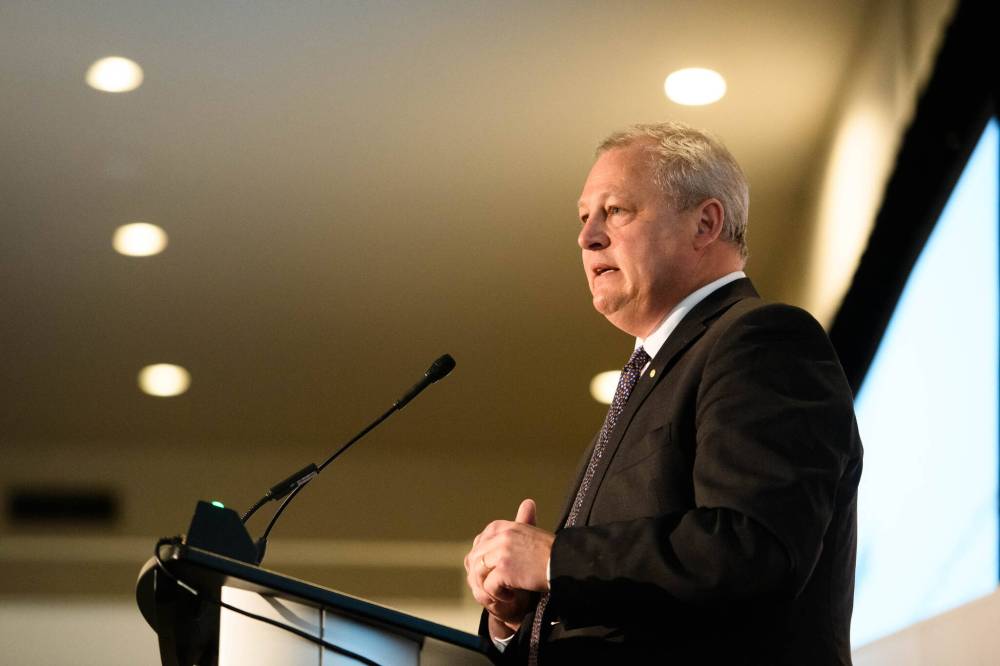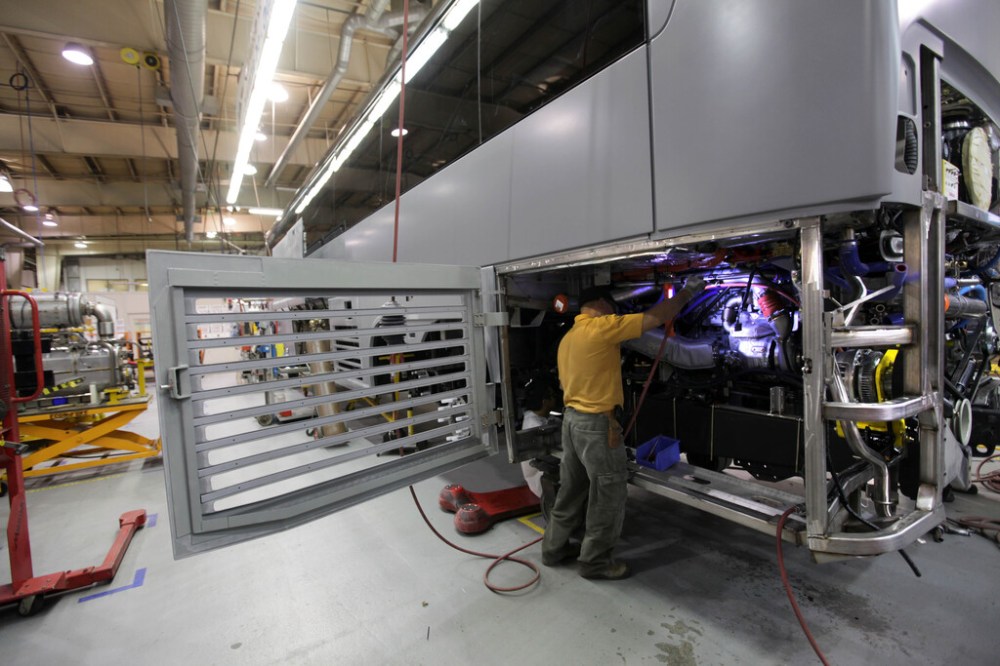‘We have been through hell,’ NFI CEO declares Supply chain issues force busmaker to downgrade outlook
Read this article for free:
or
Already have an account? Log in here »
To continue reading, please subscribe:
Monthly Digital Subscription
$0 for the first 4 weeks*
- Enjoy unlimited reading on winnipegfreepress.com
- Read the E-Edition, our digital replica newspaper
- Access News Break, our award-winning app
- Play interactive puzzles
*No charge for 4 weeks then price increases to the regular rate of $19.00 plus GST every four weeks. Offer available to new and qualified returning subscribers only. Cancel any time.
Monthly Digital Subscription
$4.75/week*
- Enjoy unlimited reading on winnipegfreepress.com
- Read the E-Edition, our digital replica newspaper
- Access News Break, our award-winning app
- Play interactive puzzles
*Billed as $19 plus GST every four weeks. Cancel any time.
To continue reading, please subscribe:
Add Free Press access to your Brandon Sun subscription for only an additional
$1 for the first 4 weeks*
*Your next subscription payment will increase by $1.00 and you will be charged $16.99 plus GST for four weeks. After four weeks, your payment will increase to $23.99 plus GST every four weeks.
Read unlimited articles for free today:
or
Already have an account? Log in here »
Hey there, time traveller!
This article was published 10/03/2022 (1370 days ago), so information in it may no longer be current.
NFI Inc. shares fell more than 20 per cent on Thursday after the company downgraded its 2022 outlook because of severe supply chain disruptions that are expected to persist for the foreseeable future.
To top off the doom and gloom, the company announced it was slashing dividends by 75 per cent.
Fourth quarter and year end results showed profits down almost 100 per cent for the year and revenue down three per cent to $2.3 billion.

Analysts agreed with company CEO Paul Soubry that while the supply chain problems are now at crisis levels — there are 50 suppliers who could shut down production if further delays occur — demand is strong and the company has been able to maintain its across-the-board industry-leading market share.
“We are pulling the fire alarm before the fire started. We are trying to get out in front of these issues and explain them to shareholders,” Soubry said in an interview with the Free Press.
Investors showed little sympathy, however, bidding the shares down close to 23 per cent at one point in the day, to close at $14.94.
“We have been through hell,” Soubry said, referring to the devastating effects the pandemic has had on the business — 2,200 employees tested positive over the past two years — and the monumental problems its having securing parts to be able to keep production moving.
To make matters even worse, a fire at a subsupplier of one of its primary North American electric bus battery suppliers, has resulted in a three-month disruption to its electric bus supply with little ability to accelerate other orders.
Chris Murray, an equity analyst with ATB Capital Markets, said “We are certainly disappointed in the impact. We are trying to understand how this is going to go. But what you don’t want is to have a field of unfinished buses that you have to go and re-work. That is really not a good thing to do from a quality and financial point of view.”
While many manufacturers are having trouble accessing parts, the complexity and specialization of NFI’s bus production has put it in a bigger jam than other mass production products.
In addition to battery problems — its zero-emission bus deliveries were still up 70 per cent — the company is having trouble accessing parts that have anything to do with micro-chips, lots of plastic parts, glass, air conditioners and other parts.
“Our recovery really looks good from an order book perspective,” Soubry said. “We don’t have an order book problem or a customer demand problem. We don’t have a funding problem. It’s a supply chain reality. It’s not like we can snap our fingers and find alternative sources of supply.”
Cameron Doerksen, an analyst with National Bank of Canada Financial Markets, said, “We concede that the fourth quarter report and 2022 outlook offered up much to be negative about and few positives. However, we still see value in the stock underpinned by strong demand drivers.”
He said he expects the stock will remain under pressure until there is more visibility on the supply chain.

On the banking side of things, the company already received relief from its syndicate of 14 banks late last year, but the covenants — guarantees that the company’s earnings relative to debt would be at a certain level — are set to resume at heightened levels in the third quarter of this year.
But now with lower earnings anticipated because of parts supply bottlenecks the company said it may have trouble staying in compliance.
“We have already had exhaustive conversations with the banks about re-negotiations around some of our covenants,” Soubry said. “We don’t have a liquidity problem. We have a covenant problem which is a mathematical calculation. The banks have been fantastic. We just need them to be a little more flexible as we head through 2022.”
As challenging as the current situation is for the company — which has several production facilities in the U.S and U.K. as well as in Winnipeg — government subsidies for transit authorities in the U.S. and the U.K. are at all time highs.
Although the pandemic forced the company to lay off a total of 1,900 workers throughout its operations – including about 500 in Winnipeg at its Motor Coach Industries division – the private coach tour business is open again and its has re-started production of highway coaches at the Winnipeg Motor Coach shop.
The decision to cut dividends is one that traditionally sends investors fleeing.
In a conference call with analysts on Thursday morning, Pipasu Soni, NFI’s chief financial officer said, “While we believe the supply chain challenges are temporary, we have made the prudent yet difficult decision to reduce our current dividend by 75 per cent to $0.05 per share. Given the strength of our order book, combined with expectations of supply recovery in late 2022 and increasing demand of our products and services we do see an opportunity to increase the dividend when there is supply chain improvement.”
martin.cash@freepress.mb.ca

Martin Cash has been writing a column and business news at the Free Press since 1989. Over those years he’s written through a number of business cycles and the rise and fall (and rise) in fortunes of many local businesses.
Our newsroom depends on a growing audience of readers to power our journalism. If you are not a paid reader, please consider becoming a subscriber.
Our newsroom depends on its audience of readers to power our journalism. Thank you for your support.









